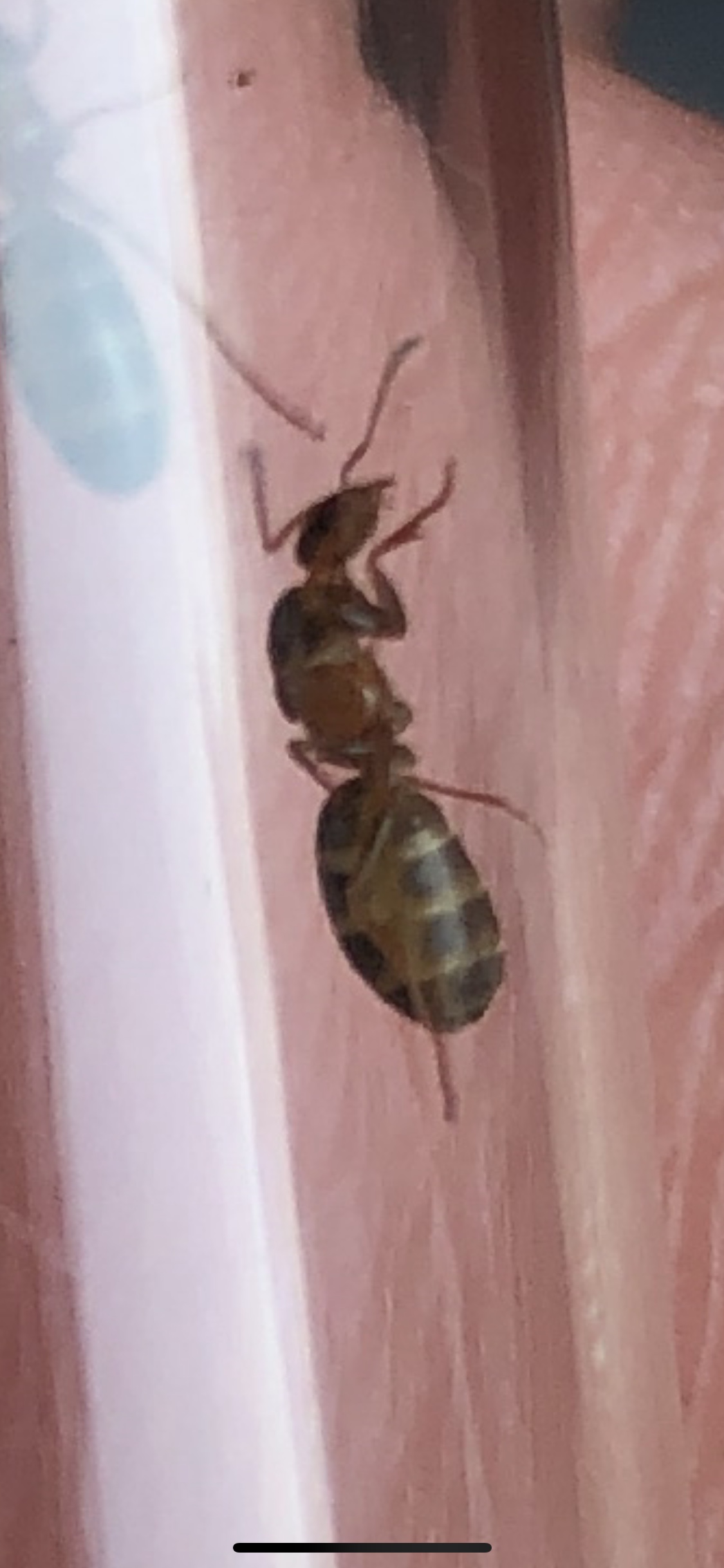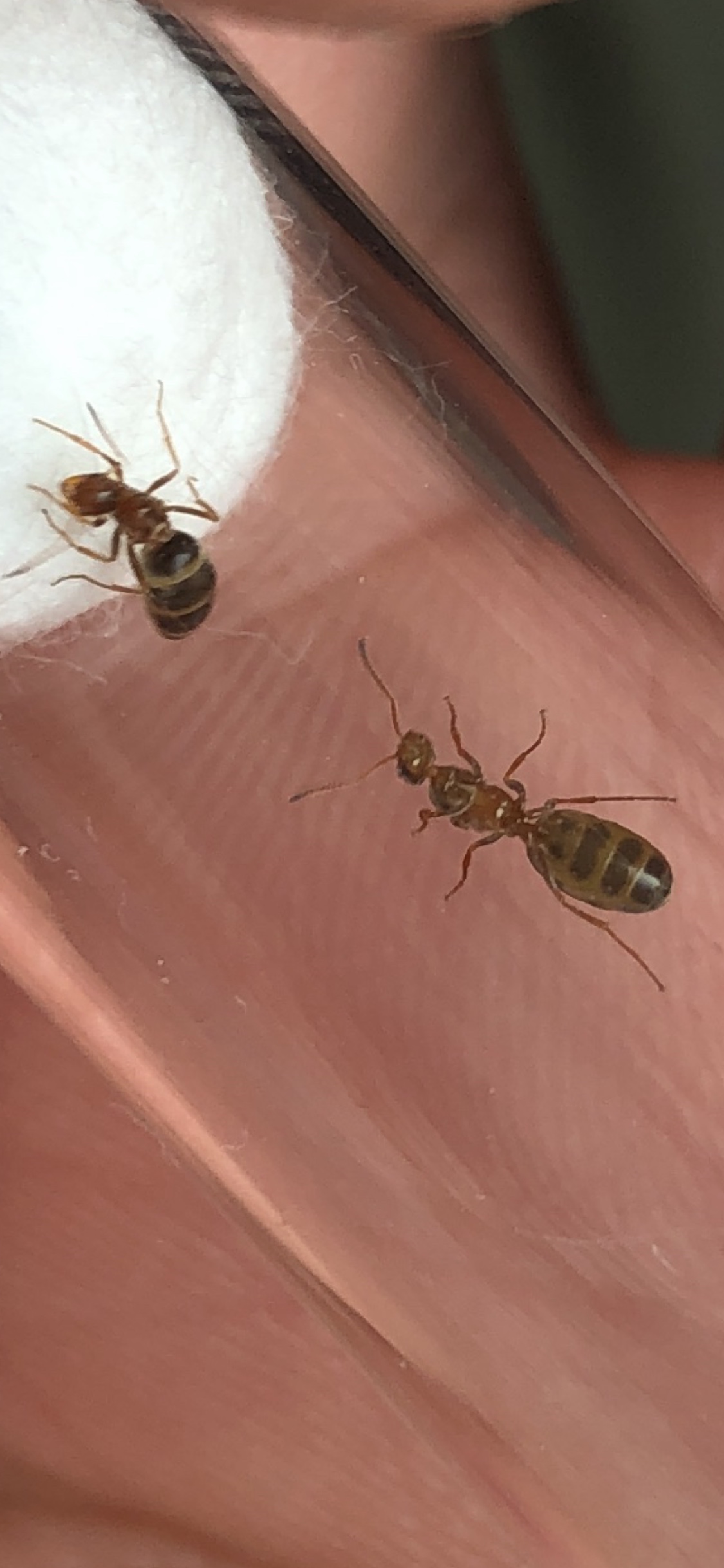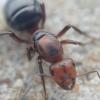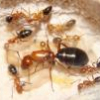2. Date of collection: 6.13.22
3. Habitat of collection: Suburban next to river
4. Length (from head to gaster): very small. I’m not good at mm guessing. Probably ~6 mm. About 3/4 the size of Tetramorium queens
5. Color, hue, pattern and texture: red head and thorax, greenish brown abdomen
6. Distinguishing characteristics: very fast moving
7. Distinguishing behavior: I believe this is Brachymyrmex but very unsure
8. Nest description: -
9. Nuptial flight time and date: around 7-9 this morning is when I found these queens



Sent from my iPhone using Tapatalk




















